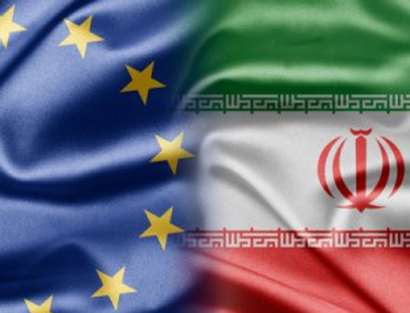Baku, Azerbaijan, Jan. 7
By Saeed Isayev - Trend:
Iran right now is enjoying a positive trend of re-establishing relations with European countries, that have stayed away for several years, while Iran was dealing with its nuclear program and international sanctions.
While the Islamic Republic still suffers from the effect of sanctions, the light at the end of the tunnel was eventually spotted. On Nov. 24, Iran and the P5+1 group managed to sign an agreement on nuclear program.
Iran has agreed to curb some of its nuclear activities for six months in return for sanctions relief. While the U.S. and its Western allies suspect that Iran is developing a nuclear weapon, Iran has been denying it, claiming it uses nuclear energy for medial research.
Nonetheless, after the agreement, it was once again underlined that Iran has to work closely with the IAEA, which monitors the Islamic Republic's nuclear activity, and keep the uranium enrichment under a certain level.
Credit for this victory goes to Hassan Rouhani, who took this matter into his own hands, right after he was declared the new president of Iran. He substituted Iran's negotiating team, secured Iranian Supreme Leader's approval, and as a result - Iran signed the deal.
This caused a trend, mentioned in the beginning of the article. Iran is considered by many European countries a solid economic partner, if only it wasn't for the nuclear issue and sanctions. Thus, as soon as the deal was signed, and Iran agreed to play along, many countries started to reach out to Iran.
On December 13, 2013, an eight-member team from the European Parliament arrived in Iran, and held talks with senior Iranian lawmakers, including Iranian Parliament Speaker Ali Larijani and Chairman of the Majlis National Security and Foreign Policy Committee Alaeddin Boroujerdi.
Then on Dec. 21, Italian Foreign Minister Emma Bonino visited Tehran, heading a high-ranking delegation. She was the first Italian foreign minister to visit Iran in nearly a decade.
On Jan. 1, Iranian parliament said it received 10 requests from foreign parliamentary delegations to visit Iran and meet with local senior officials until the end of the current Iranian calendar (ends on March 20).
Following Emma Bonino's visit, another delegation from Italy visited Iran on Jan. 3, led by the chairman of the Foreign Affairs Commission of the Italian Senate Lamberto Dini.
Boroujerdi said on Jan. 7 that delegations from Canada and Ireland are also expected to visit Iran in the near future. He added that the delegation, led by Chairman of the Oireachtas (the Irish Parliament) Committee on Foreign Affairs and Trade, Pat Breen, will arrive at the Iranian capital on January 11.
On the same day of Jan. 7, a British parliamentary delegation headed by former foreign secretary Jack Straw arrived in Tehran on Jan. 7, for a 3-day visit, to discuss issues of mutual interest with senior Iranian officials.
And another meeting has reportedly been scheduled, as a group of German lawmakers should be coming to Iran later in January, to exchange views on the expansion of Tehran-Berlin parliamentary ties with senior Iranian parliament officials.
This month of January for Iran is at least this - very good time to earn some points on international arena, and improve its relations with European countries.






